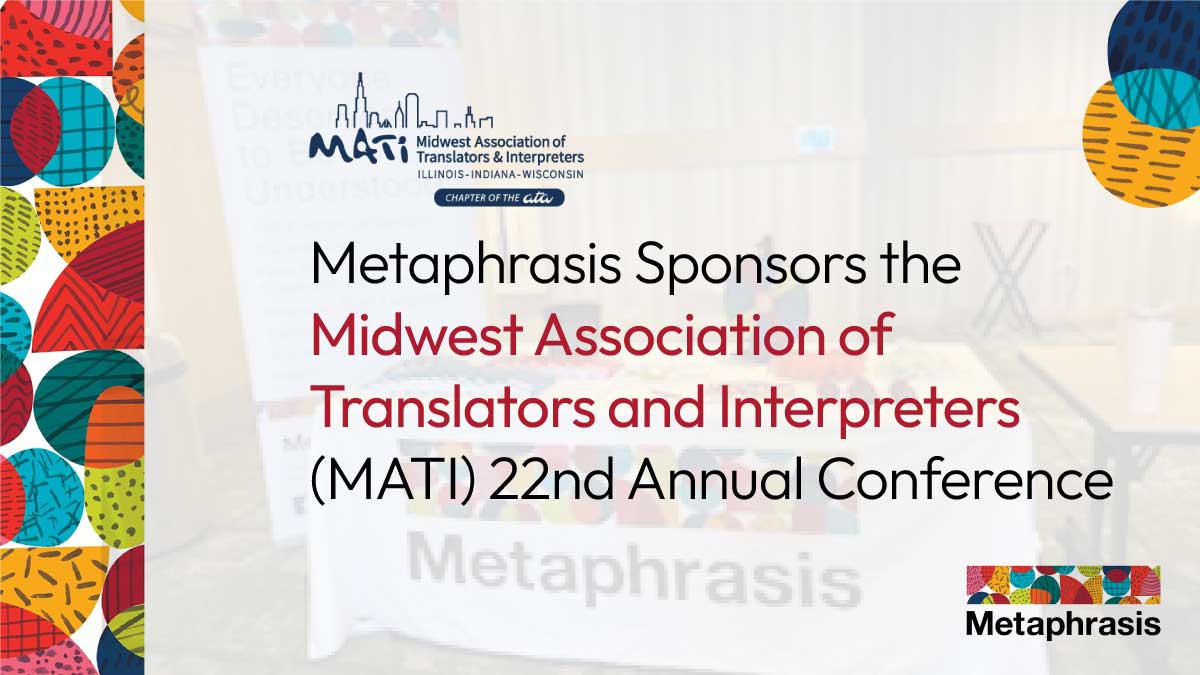
Honoring Hispanic Heritage Through Language: Why Bilingual Education and Language Access Matter
Every year, Hispanic Heritage Month offers the United States a meaningful opportunity to reflect on the extraordinary contributions of Latino communities. We celebrate innovators like Ellen Ochoa, the first Latina to travel into space, and advocates like Dolores Huerta, whose tireless work reshaped the labor movement. Across schools, neighborhoods, and workplaces, the month brings vibrant celebrations that showcase the artistry, resilience, and cultural richness that Spanish-speaking families bring to our nation.
But while these celebrations highlight history and heritage, they also invite us to consider something deeper the way we honor language itself as an essential part of culture and identity.
Language as the Heart of Heritage
For many Hispanic families, language is far more than a means of communication; it is a living link to tradition, family, and belonging. Yet, for countless Spanish-speaking students and professionals, maintaining that connection can sometimes feel like a challenge rather than strength.
In classrooms across the country, children who arrive speaking Spanish a language shared by over 40 million people in the United States are often encouraged to set it aside in favor of English. This experience can create an unintended message: that success requires leaving one’s language, and by extension, part of one’s identity, behind.
At Metaphrasis, we view language differently. We see it as the foundation of inclusion — the bridge between cultures, communities, and generations. When we make space for every language in our schools, workplaces, and public institutions, we affirm that every voice deserves to be heard and valued.
The Case for Bilingual Education
In recent years, school districts across the country including right here in Chicago have expanded biliteracy pathways that give students the opportunity to learn and thrive in both English and Spanish. These initiatives recognize what many families and educators have long understood: bilingualism is not a barrier to success, but strength to nurture.
Research continues to affirm that bilingual learners often demonstrate greater cognitive flexibility, problem-solving skills, and creativity. Beyond the academic advantages, maintaining and developing one’s home language fosters a deeper sense of identity, belonging, and confidence qualities that support lifelong learning and personal growth.
When students feel that their culture and language are respected in the classroom, they are more likely to engage, achieve, and envision a future that celebrates rather than silences their heritage. This mindset not only benefits individual learners but also strengthens our communities by preparing multilingual citizens who can build bridges across cultures and perspectives.
At Metaphrasis Language & Cultural Solutions, LLC, this belief guides everything we do. Whether facilitating communication between educators and families, interpreting for community programs, or translating academic and district materials, we understand that language access is a cornerstone of educational equity. Through our work, we aim to ensure that every voice is heard in every language.
Representation Matters: Reflecting Students’ Voices
Education is most powerful when students see themselves in what they learn. Instructional materials should serve as both mirrors and windows mirrors that reflect students’ identities and windows that invite them to explore the experiences of others.
Incorporating Latino voices, histories, and stories into everyday curriculum not just during Hispanic Heritage Month helps all students appreciate the richness of our shared world. Including bilingual resources, culturally relevant literature, and visual supports allows learners to connect more deeply with lessons while developing strong language skills in both English and Spanish.
At Metaphrasis, we support this vision by ensuring that translated and interpreted content captures not just words, but meaning, context, and culture. Our commitment goes beyond accuracy; it’s about representation, understanding, and respect. When educators, organizations, and families have access to clear, culturally appropriate communication, they can work together more effectively for the success of every student.

Language Access as a Community Commitment
Language inclusion extends beyond the classroom. It touches every area of life from healthcare and government services to business and community engagement.
When families can understand a medical diagnosis, participate in a school meeting, or access legal information in their native language, they experience a deeper sense of trust and belonging. These interactions foster stronger communities built on mutual respect and understanding.
Through our translation and interpretation services, Metaphrasis partners with institutions and organizations to make these connections possible. We help ensure that no one is left behind because of a language barrier. Our interpreters and translators act as bridges not only between words, but between people, cultures, and experiences.
Each translated document, each interpreted conversation, contributes to a larger goal: building a society where language inclusion is not an afterthought, but a shared commitment.
Moving Beyond Celebration: Embracing Language as Culture
Hispanic Heritage Month reminds us that celebrating culture means more than displaying flags or hosting events. True celebration requires sustained action ensuring that language, culture, and identity are respected every day of the year.
Educators can champion inclusive practices that honor bilingual learners. Policymakers can fund programs that expand language access. Organizations can partner with professional language service providers to ensure communication that is accurate, inclusive, and human-centered.
At Metaphrasis, we believe that language inclusion is an act of empowerment. Every interpretation, every translation, and every conversation is an opportunity to affirm dignity and create connection. By honoring the languages that shape our communities, we not only preserve heritage we invest in the future.
Because when language is valued, people are valued.
And that is the most authentic way to honor Hispanic heritage — today, and every day.
